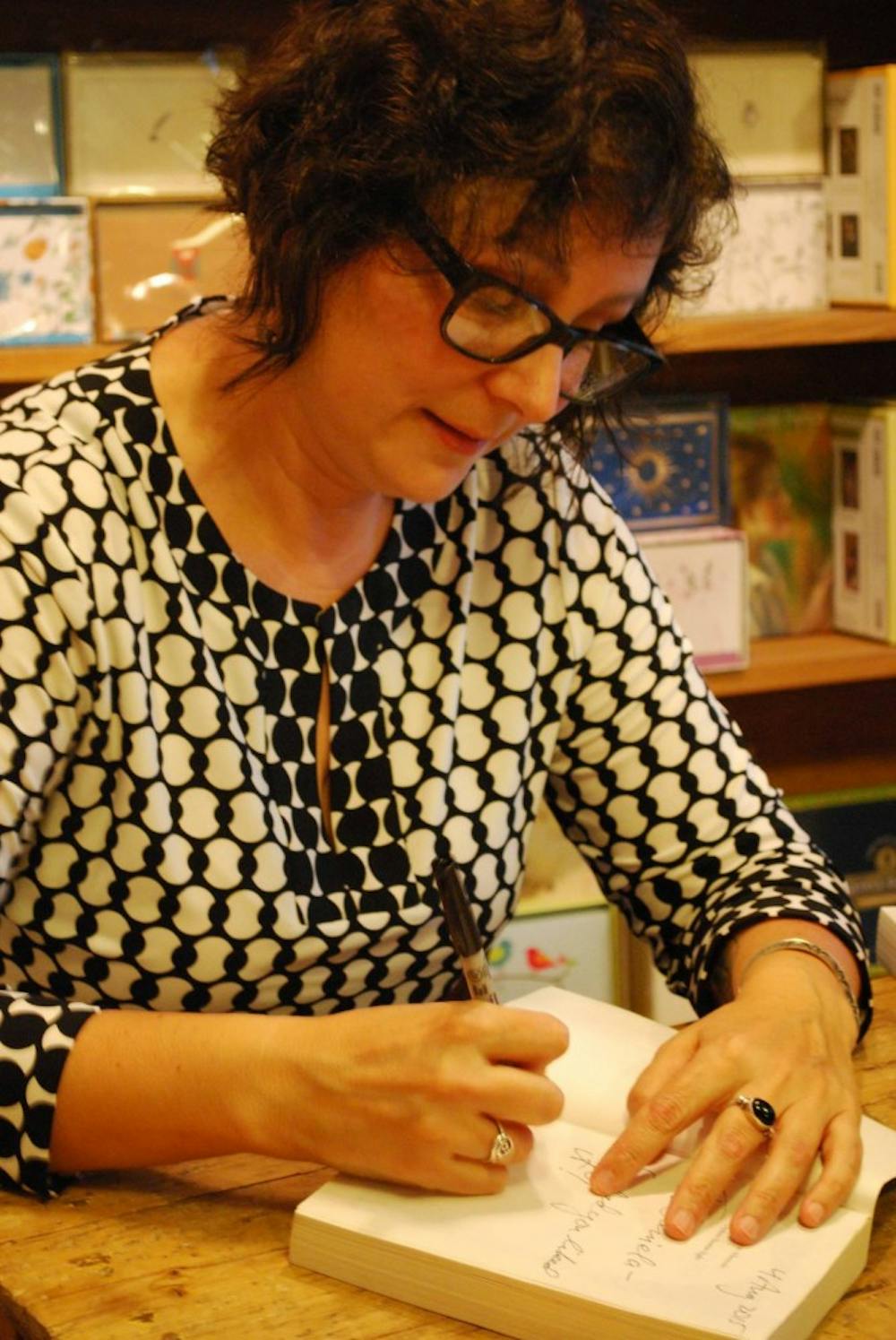From a nugget of family history, Shippensburg University professor Kim van Alkemade wrote a novel that brings to light cruel medical practices committed on orphans in the early 1900s.
In her historical fiction novel inspired by true events, van Alkemade tells the story of an orphan who, later in life, must choose between mercy and revenge when the tables of life turn and she encounters the doctor who performed dangerous medical experiments on her during her time in a New York City Jewish orphanage.
Van Alkemade will be reading from her new novel “Orphan #8” on Thursday, Sept. 17, at 7 p.m. in Old Main 206.
“I found it very striking how she spoke about issues today, but when you put it in the time period of the book, it makes these issues seem all the more real for the character,” said Mary Grace Keller, a student at Shippensburg University. Not only did the main character, Rachel Rabinowitz, suffer from the experiments done on her in the orphanage, but she also had to deal with the stigma of being a lesbian in the first half of the 1900s, Keller said.
Van Alkemade’s grandfather, Victor Berger, who grew up in the Hebrew Orphan Asylum with his brothers, Charlie and Seymour, inspired the idea for her novel. The three siblings were not orphans, but their mother was unable to take care of them, so she sent them to live at the orphanage.
While doing research on her grandfather’s early days at the orphanage, van Alkemade came across some information on other orphanages where doctors would do medical research using the children as their subjects.
It was not until van Alkemade was interviewing candidates to fill an empty position in the English department that she got the push to finally begin her novel. When asked how he or she planned to maintain their professional writing, every applicant stressed the importance of writing daily. Writing a novel is not something that can be done overnight — it is incremental, van Alkemade said.
“I figured, I have this idea, I have the research, I have these notes,” van Alkemade said. “I guess that’s all it’s gong to take.”
Van Alkemade had originally intended her novel to be narrative nonfiction, but when she discovered that the orphans were given X-ray treatments it reminded her of a story her great-grandmother used to tell her. Van Alkemade’s great-grandmother had worked at an orphanage while her grandfather lived there. She had the job of shaving the heads of the orphans when they first arrived.
“One time, this girl came with such beautiful hair — I couldn’t shave it off,” van Alkemade said her grandmother told her. Van Alkemade thought this was the epitome of a literary contrast, and that is when she knew her novel was going to be fiction.
After completing her novel, van Alkemade spent a year writing letter after letter trying to find an agent, even reading books the agents had published previously, but none of that worked. She eventually went to The New York Pitch Conference, where attendees can get advice on pitching their books to agents and editors. One of the editors read van Alkemade’s pitch and loved it. Van Alkemade sent the editor her book and they reached a publishing agreement two weeks later.
“Orphan #8” was finally available for purchase on Aug. 4, 2015. Van Alkemade said her recent feat hit home when she saw her book at a store in the airport in Phoenix. It brought tears to her eyes, she said.
“It was surreal,” van Alkemade said. “This thing that had been inside my head for so many years is now in public, in a store. People can buy it and I don’t even know who they are.”
SU professor publishes first novel

Kim van Alkemade signs a copy of her book, “Orphan #8,” which was available on the shelves on Aug. 4. Van Alkemade spent a year looking for a publisher who would contract her novel.

The Slate welcomes thoughtful discussion on all of our stories, but please keep comments civil and on-topic. Read our full guidelines here.